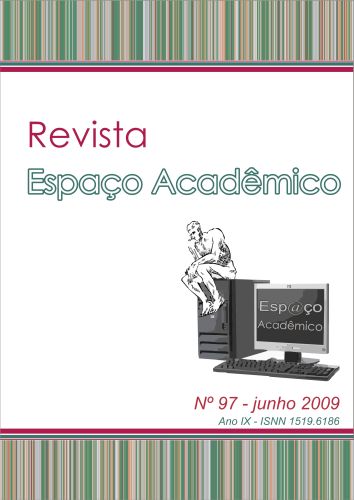The dangers of Utopia
Resumo
Utopia can have an uplifting and a dark side, but usually the dark side ends up trumping the initial idealism. The reason for this is that utopians inevitably adopt a messianic image of the world. The three messianic revolutions in history—the American, French and Bolshevik—were led by men who thought their ideas were universal. This essay examines the writings of French existentialist Albert Camus, who argues that there are no transcendental values, at the same time he does not accept nihilism. Camus makes a distinction between a rebel and a revolutionary, and concludes that a rebellion will try to end the specific oppression, whereas the revolution will try to create a “new man,” with common values throughout the world.
Downloads
DECLARAÇÃO DE ORIGINALIDADE E DIREITOS AUTORAIS
Declaro que o presente artigo é original, não tendo sido submetido à publicação em qualquer outro periódico nacional ou internacional, quer seja em parte ou em sua totalidade.
Os direitos autorais pertencem exclusivamente aos autores. Os direitos de licenciamento utilizados pelo periódico é a licença Creative Commons Attribution Non-Commercial 4.0 (CC BY-NC 4.0): são permitidos o acompartilhamento (cópia e distribuição do material em qualqer meio ou formato) e adaptação (remix, transformação e criação de material a partir do conteúdo assim licenciado para quaisquer fins, exceto os comerciais.
Recomenda-se a leitura desse link para maiores informações sobre o tema: fornecimento de créditos e referências de forma correta, entre outros detalhes cruciais para uso adequado do material licenciado.






